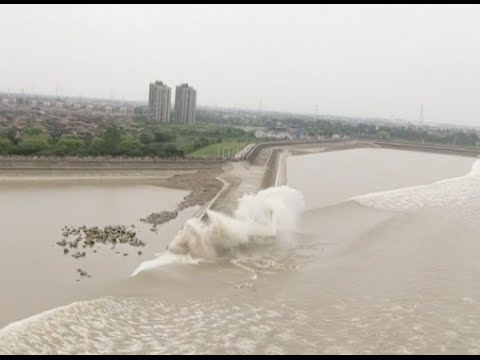
noun
- an abrupt rise of tidal water moving rapidly inland from the mouth of an estuary.
noun
- another term for bore 3
verb
- to produce (a hole) in (a material) by use of a drill, auger, or other cutting tool
- to increase the diameter of (a hole), as by an internal turning operation on a lathe or similar machine
- (tr) to produce (a hole in the ground, tunnel, mine shaft, etc) by digging, drilling, cutting, etc
- (intr) informal (of a horse or athlete in a race) to push other competitors, esp in order to try to get them out of the way
noun
- a hole or tunnel in the ground, esp one drilled in search of minerals, oil, etc
-
- a circular hole in a material produced by drilling, turning, or drawing
- the diameter of such a hole
-
- the hollow part of a tube or cylinder, esp of a gun barrel
- the diameter of such a hollow part; calibre
- Australian an artesian well
verb
- (tr) to tire or make weary by being dull, repetitious, or uninteresting
noun
- a dull, repetitious, or uninteresting person, activity, or state
noun
- a high steep-fronted wave moving up a narrow estuary, caused by the tide
verb
- the past tense of bear 1
v.1Old English borian “to bore through, perforate,” from bor “auger,” from Proto-Germanic *buron (cf. Old Norse bora, Swedish borra, Old High German boron, Middle Dutch boren, German bohren), from PIE root *bher- (2) “to cut with a sharp point, pierce, bore” (cf. Greek pharao “I plow,” Latin forare “to bore, pierce,” Old Church Slavonic barjo “to strike, fight,” Albanian brime “hole”). The meaning “diameter of a tube” is first recorded 1570s; hence figurative slang full bore (1936) “at maximum speed,” from notion of unchoked carburetor on an engine. Sense of “be tiresome or dull” first attested 1768, a vogue word c.1780-81 according to Grose; possibly a figurative extension of “to move forward slowly and persistently,” as a boring tool does. v.2past tense of bear (v.). n.thing which causes ennui or annoyance, 1778; of persons by 1812; from bore (v.1). The secret of being a bore is to tell everything. [Voltaire, “Sept Discours en Vers sur l’Homme,” 1738]
- In fluid mechanics, a jump in the level of moving water, generally propagating in the opposite direction to the current. Strong ocean tides can cause bores to propagate up rivers.
-
- The white, shallow portion of a wave after it breaks. The bore carries ocean water onto the beach.
- A tidal wave caused by the surge of a flood tide upstream in a narrowing estuary or by colliding tidal currents.
 Liberal Dictionary English Dictionary
Liberal Dictionary English Dictionary